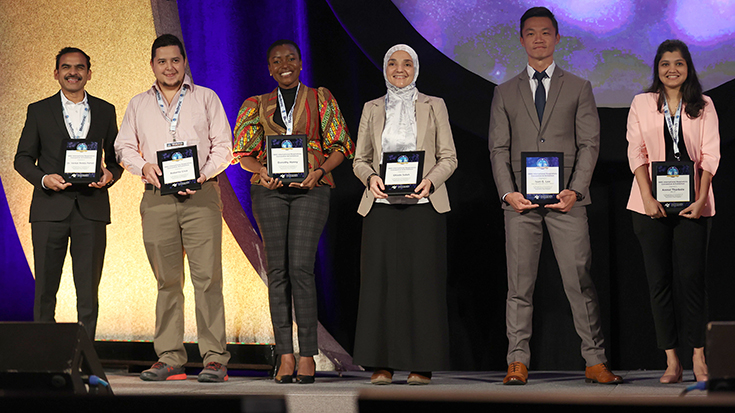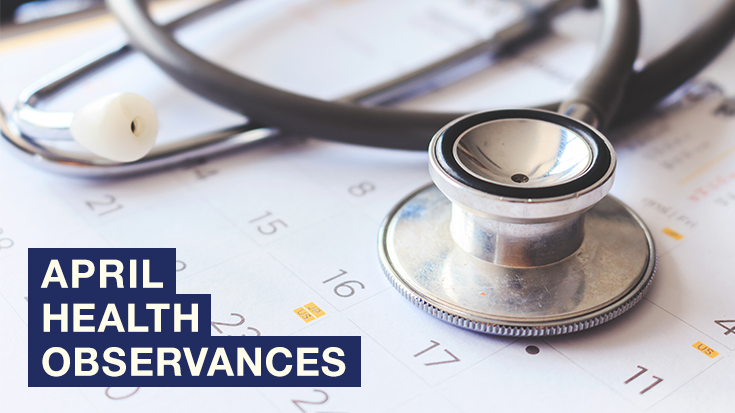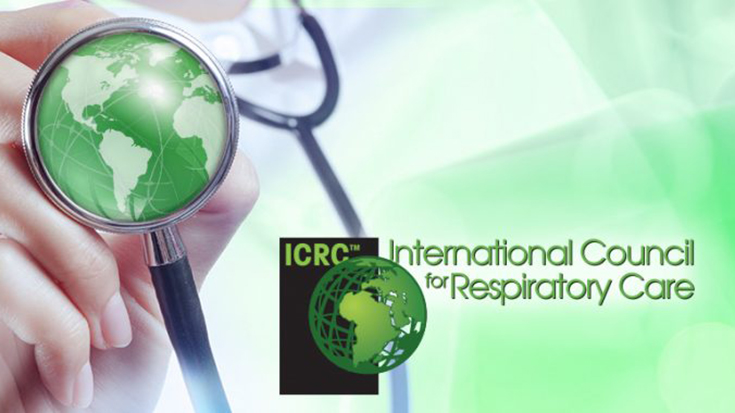
The ICRC Continues to Promote Respiratory Care Around the Globe
The International Council for Respiratory Care (ICRC) was formed in the early 1990s to foster the exchange of information between respiratory professionals here in the U.S. and those around the world. Over the three decades the Council has been in operation, it has developed numerous educational programs aimed at sharing vital clinical information. It also developed an International Education Recognition System to put a stamp of approval on educational efforts worldwide that meet or exceed guidelines approved by the ICRC.
What did the ICRC focus on in 2022, and how is it impacting the profession? We asked ICRC President Daniel D. Rowley, MSc, RRT-ACCS, RRT-NPS, RPFT, FAARC, to bring us up-to-date.
A host of activities
According to Rowley, the ICRC spent much of last year on efforts to encourage new country membership and promote the sustainable recognition and value of respiratory care professionals worldwide. In addition to engaging in initiatives to advance advocacy and education in the profession, Council Governors worked to ensure formal recognition of the invaluable contributions respiratory care providers make to patient care and multidisciplinary education.
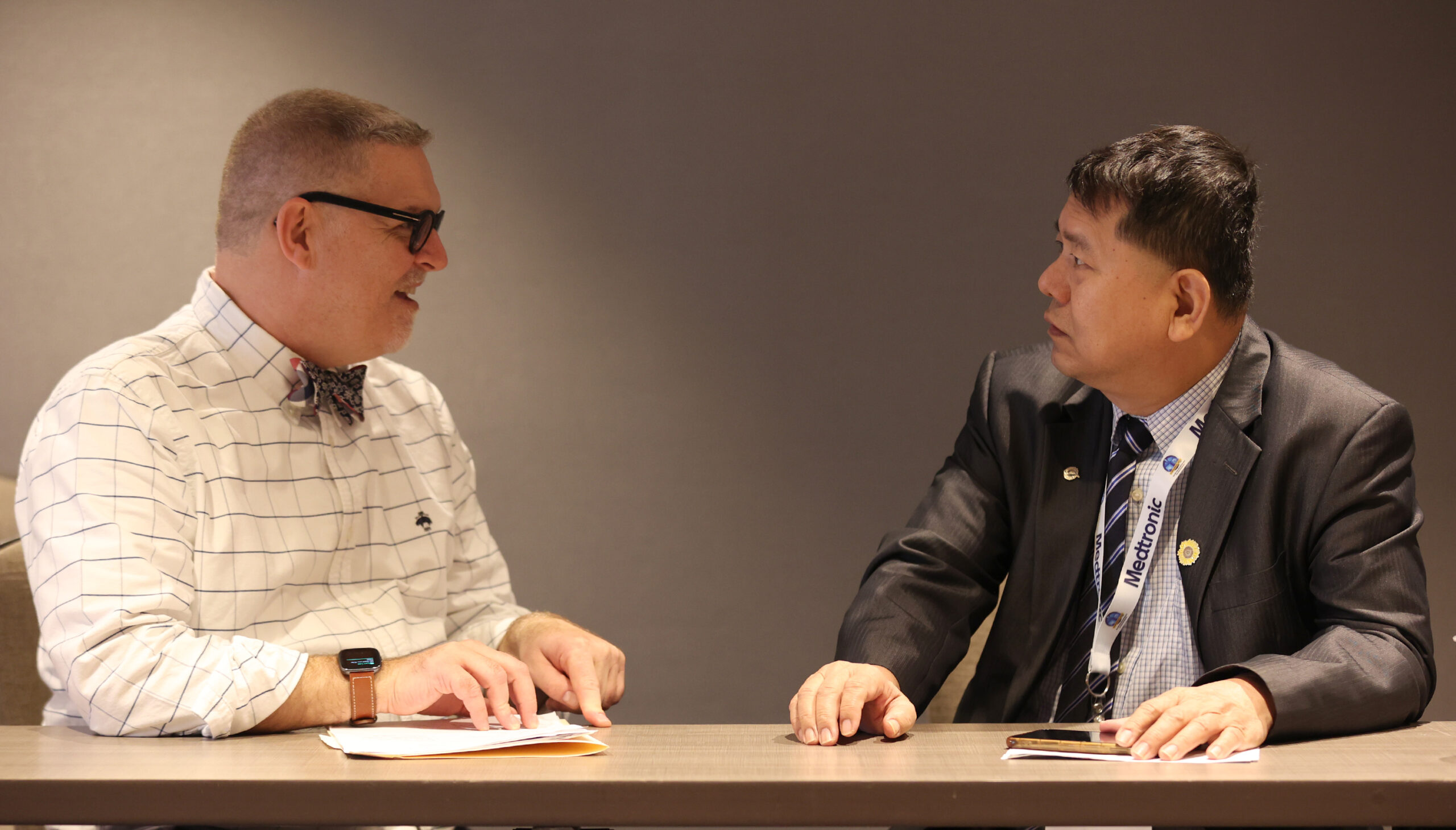 Dan Rowley (left) speaks with Chia-Chen Chu at the ICRC Executive Committee meeting.
Dan Rowley (left) speaks with Chia-Chen Chu at the ICRC Executive Committee meeting.Over the past year, Council members have organized or participated in virtual meetings to address important areas of concern and have authored original research. Council members also stepped up to serve as chapter authors for a co-sponsored ARCF, AARC, and ICRC standardized Fundamentals of Respiratory Care Support (FRCS) course. This course will be implemented outside of the U.S. for health care providers not experienced in respiratory care as practiced in North America.
The course’s chairs and managing editors, Jerome Sullivan, PhD, RRT, FAARC, and Hassan Alorainy, BSRC, RRT, FAARC, hosted an inaugural FRCSC instructor trainer course in New Orleans. FRCS is now in the final production phase and will be ready to launch later this year.
These accomplishments and more were reviewed during the ICRC meeting at AARC Congress 2022 in New Orleans.
“A common theme that resonated during the Council’s 2022 annual business meeting was that respiratory care professionals from around the globe take pride as effective front-line patient care providers and contributors to meaningful health care policy change,” Rowley said. “They also are willing to adapt quickly to a changing health care landscape that demands collaboration and knowledge sharing across country borders.”
Medical Advisors Committee ramps up
The ICRC also moved forward with its Medical Advisors Committee in 2022. The committee was formed in 2021 to work with the ICRC Governors to support the profession. Council Governors were invited to identify a physician advisor who is knowledgeable and involved with respiratory care and would be willing to serve on the committee.
Committee members will participate in activities that align with the following responsibilities and roles.
Responsibilities of medical advisors
- Support the recognition and development of respiratory care in participating Council member countries.
- Provide medical advice and support to their nation’s national respiratory care society/association.
- Be a vocal advocate for the respiratory care profession.
- Help promote quality respiratory care globally.
Role of the Medical Advisors Committee
- Support committee members in fulfilling medical advisor responsibilities.
- Share best and effective practices.
- Actively engage in rapid respiratory care-related communication in a changing health care landscape.
- Harmonize practice when possible.
- Assist in engaging physicians, other health care professionals, and political entities in supporting the safe, effective, and ethical practice of respiratory care.
The Medical Advisor Committee includes 12 members and is co-chaired by ICRC Medical Advisor Bruce Rubin, MD, and Rowley, in his role as ICRC president.
“The committee has had two virtual meetings that identified where physician advocacy may be most helpful, such as respiratory care licensing, public relations, and involvement in meeting planning and advocacy for ICRC-endorsed educational programs,” said Rowley.
Growing country-level organizations
Rowley said the ICRC will continue to focus on the above initiatives in 2023 while simultaneously expanding its reach and commitment to advance the safe, effective, and ethical practice of respiratory care worldwide.
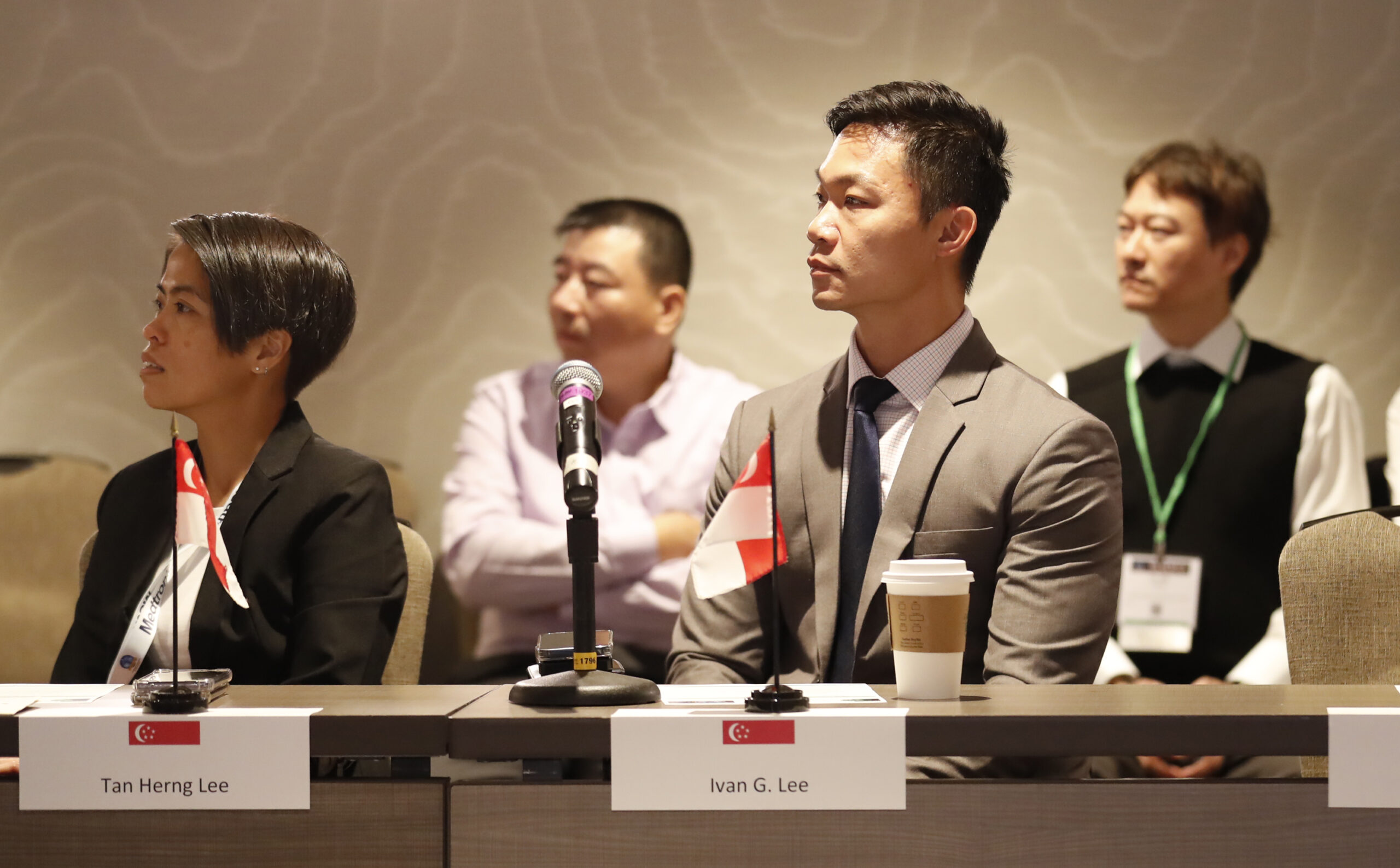 Many from around the world attended the ICRC Business Meeting at Congress in Novemeber.
Many from around the world attended the ICRC Business Meeting at Congress in Novemeber.The continued establishment of country-level professional organizations will be a big part of those efforts.
“Several ICRC country members have provided examples of their formally established respiratory care society and its functions. Furthermore, others are actively exploring options that will result in the successful implementation of a respiratory care society in their respective country,” said Rowley. “As president of the ICRC, I have received requests from several Council Governors asking for guidance and resources that may be used to assist them with establishing a customized respiratory care society. Council Governors will be asked to share resources that may serve as respiratory care society exemplars to assist in this effort.”
Greater globalization is on the way
Respiratory care is increasingly becoming a worldwide profession, and the ICRC has had a big part in making that happen. As Dan Rowley has shared in this update, the Council is ready, willing, and able to continue the task.
Their goal, he continues, is to ensure that the value of respiratory therapists is “seen by the health care provider workforce, government officials, ministries of health, and administrators of higher education” in their nations and beyond.
Email newsroom@aarc.org with questions or comments, we’d love to hear from you.








